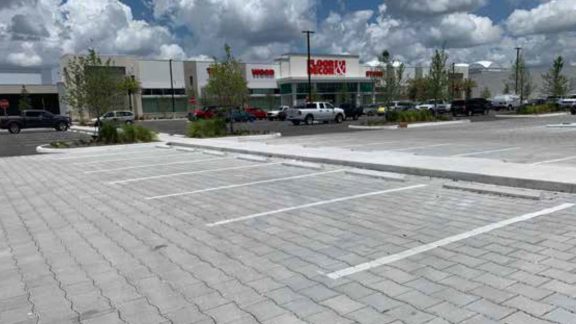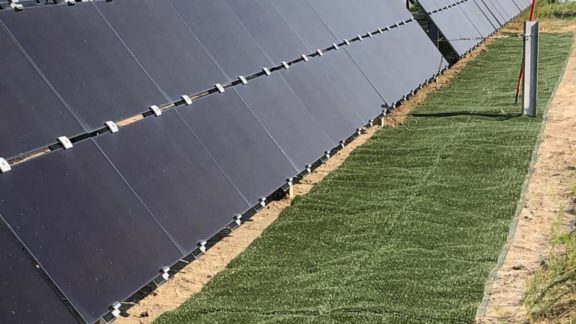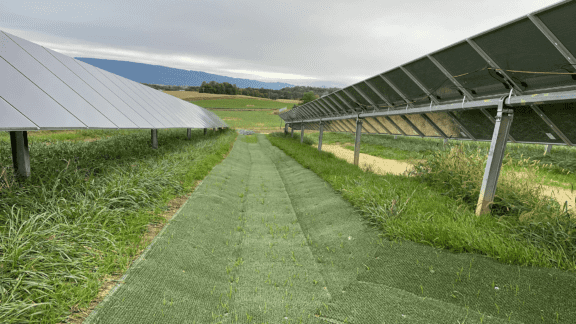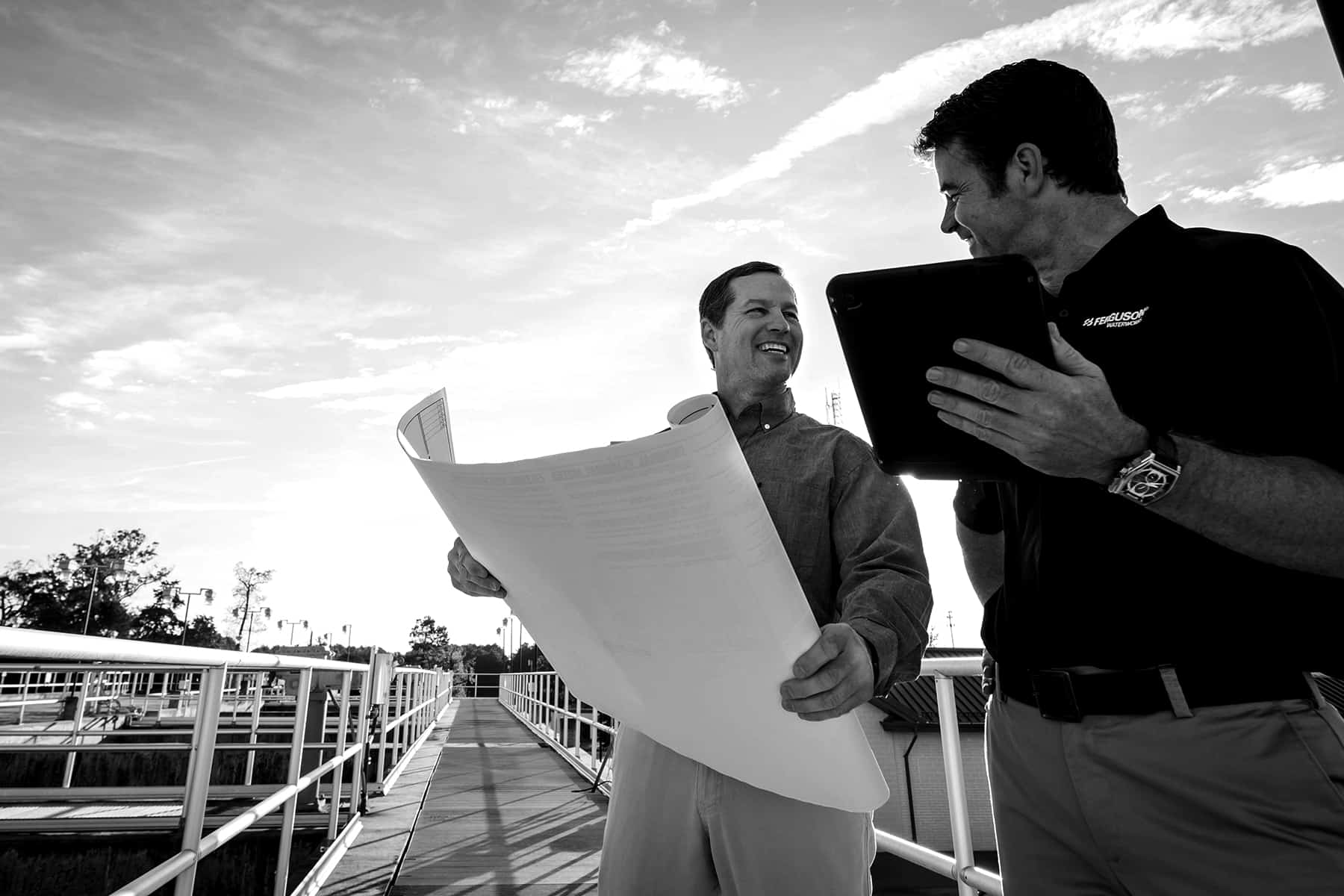North Point State Park in Baltimore, MD
iscover how a budget-friendly permeable paving system reduced clogging and maintenance after stormwater repeatedly damaged a gravel parking lot.
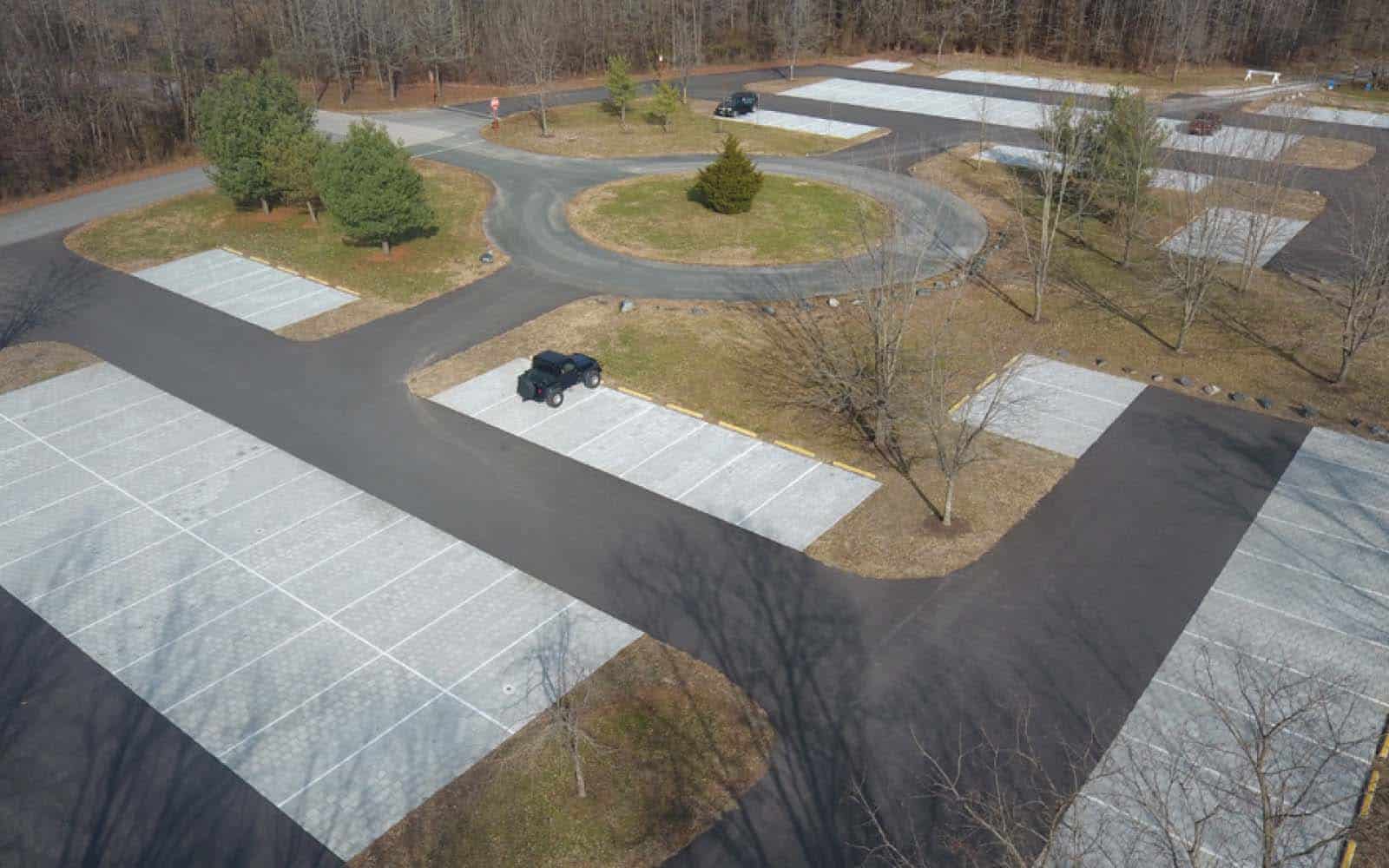
Download Case Study
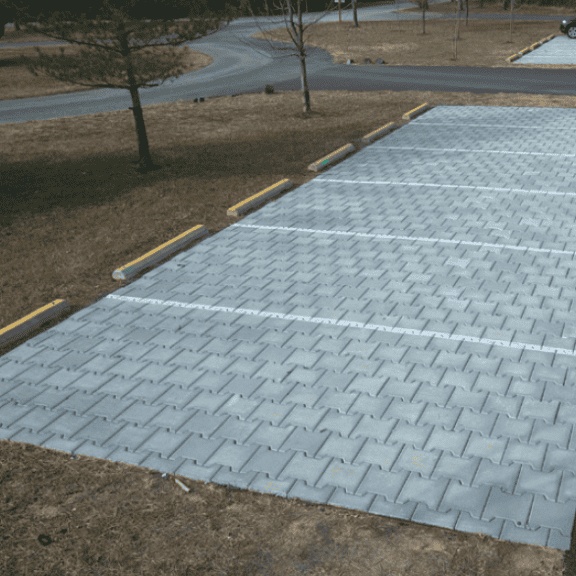
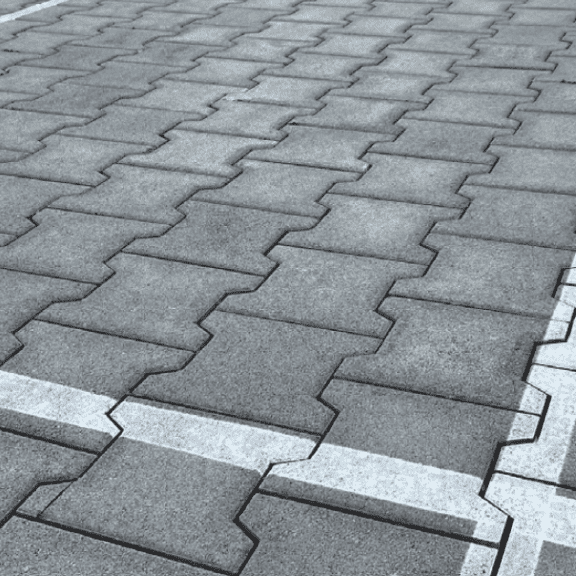
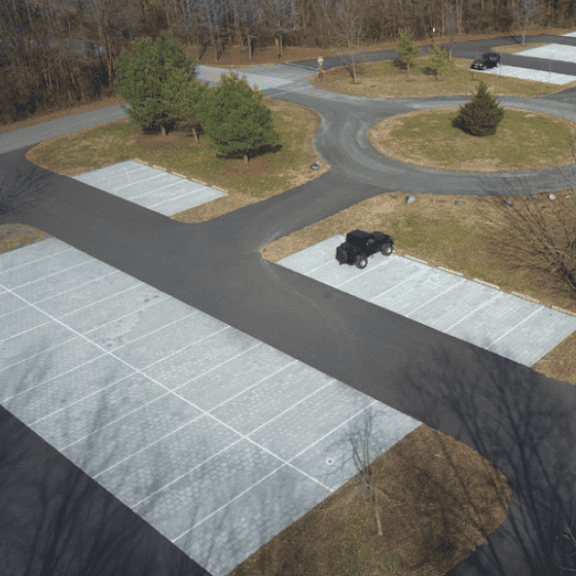
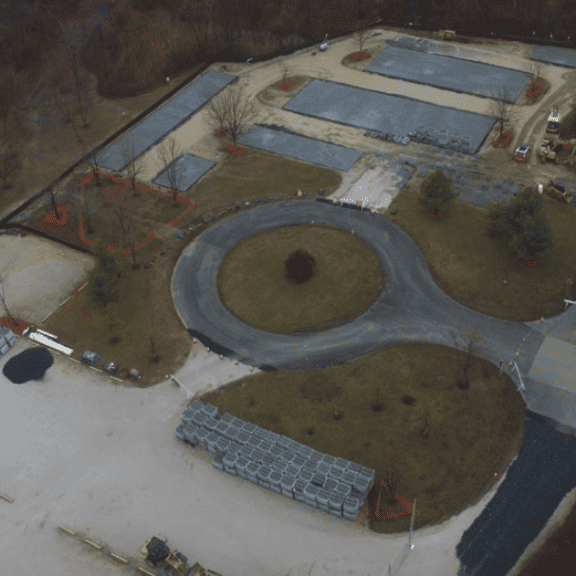
Initial Concern
A gravel parking lot in North Point State Park had become rutted due to stormwater damage. Maintenance and repairs to fix the reoccurring issues had become costly, causing the client to consider other permeable parking options.
Goal
Install a budget-friendly permeable paving system with reduced maintenance requirements.
Installation & Solution
After experiencing many issues with the gravel lot, the client was interested in using permeable pavers to create a more formal parking surface that would allow infiltration and reduce maintenance. As the lot was 1.7 acres, the engineer decided to use asphalt and pave the driving lanes at a pitch towards the parking spots that would feature PowerBLOCK open-joint permeable pavers (approximately 25,000 sf throughout the lot). While PowerBLOCK pavers are capable of providing the required load support to be utilized in drive lanes, the engineer was able to reduce costs while meeting all necessary regulations by only using the pavers in the 141 parking spots.
The installation included a layer of #2 stone for storage with a layer of #57 stone over it to assist with both filtration and storage. The layer of #7 or #8 stone that is often used for leveling pavers is not required with the PowerBLOCK system, which helps reduce the likelihood of clogging towards the top of the system. A combination of overdrains and underdrains were also installed to assist in removing water from the system during larger storms.
Result
More than two years after installation, the permeable paving system is still operating as expected with little maintenance required. The leading edges are starting to show signs of clogging, but the water is able to flow past these edges to achieve the desired infiltration rates (1,000 in/hr). While the system doesn’t usually require vacuuming for 5-10 years, we have recommended that it be vacuumed every 3 years to clear the leading edges before the compaction becomes extremely difficult for maintenance to remove. As the system uses open-joint pavers, the maintenance is limited to simple vacuuming and the joints will not need to be refilled with stone.
View Similiar Case Studies
In order to revitalize and meet stormwater codes, the abandoned parking area at the Shoppes at Fashion Square in Orlando, FL, required updates. With a permeable paving system and machine technology, we helped the client achieve their goals, save $1 million, and complete the project in just 10 days.
See how contractors mitigated erosion and sediment runoff at a solar farm in Roanoke Rapids, NC.
Learn how Ferguson Waterworks addressed some concerning erosion problems on a solar farm in Mt. Jackson, VA.
